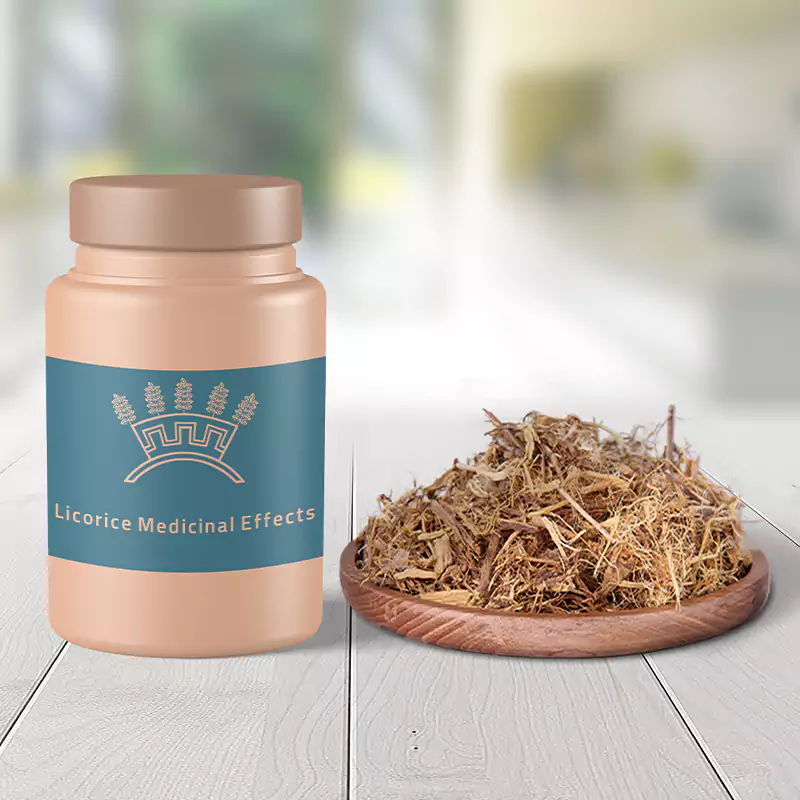Medicinal Effects of Licorice
Licorice (Glycyrrhiza glabra) is a wild herb that grows primarily in Southern Europe, North Africa, and parts of Asia, including Iran. Renowned for its medicinal properties, licorice has been used in traditional medicine for centuries to treat various ailments. Its bioactive compounds, such as glycyrrhizin and flavonoids, exhibit anti-inflammatory, antiviral, and antioxidant properties. These attributes make licorice a valuable ingredient in industries like pharmaceuticals, cosmetics, and health products. Common licorice-based products include licorice root powder, extract powder, solid extracts, and paste. Sepidan Osareh Jonoob Co., a leading global producer and exporter of licorice products, ensures high-quality production to meet international standards, with its products widely utilized in treating respiratory, digestive, and skin-related conditions.
Medicinal Effects of Licorice
Licorice (Glycyrrhiza glabra) is a medicinal herb known for its therapeutic applications in treating digestive disorders, respiratory issues, toothaches, sore throat, and various skin and hair conditions. According to Sepidan Osareh Jonoob Co., licorice contains essential vitamins such as B and E, minerals like potassium and magnesium, along with sterols, amino acids, and bioactive compounds including isoflavonoids, flavonoids, and saponins, which make it a popular ingredient in skincare products.
Key Medicinal Components of Licorice
- Glycyrrhizin:
- The main active compound responsible for licorice’s distinct sweetness, which is approximately 50 times sweeter than sugar.
- Exhibits anti-inflammatory and antiviral properties.
- Antioxidants:
- Compounds like Licochalcone A in licorice root protect the skin against UV damage and boost the skin’s natural defense system.
- Helps in collagen regeneration, reducing wrinkles, and preventing skin sagging.
Licorice for Skin Health
- Antibacterial and Anti-inflammatory Properties:
Licorice effectively treats conditions like acne, eczema, and psoriasis by reducing inflammation, redness, and irritation. - Pigmentation Control:
Licorice contains glabridin, a compound that reduces hyperpigmentation by dispersing melanin in the skin, resulting in a brighter and more even skin tone. - Prevention of Skin Infections:
Licorice extract keeps the skin clean and free from infections by inhibiting bacterial growth.
Licorice for Hair Health
- Treats dry and oily scalp conditions.
- Prevents hair loss and promotes faster hair growth.
- Opens scalp pores and strengthens hair follicles, preventing thinning and damage.
- Useful for repairing colored and damaged hair.
In traditional Indian medicine, licorice has been widely used for improving hair growth and reducing hair fall.
Scientific Updates
Recent studies highlight licorice’s efficacy in anti-aging treatments, as it helps in the removal of free radicals that cause oxidative stress. Licorice also contains enzymes that act as a natural sunblock, providing protection against harmful UV rays.
Conclusion
Licorice remains a vital component in modern skincare and haircare products due to its antioxidant, anti-inflammatory, and antibacterial properties. Its applications extend from treating skin infections to improving hair quality and protecting against environmental damage. As research advances, licorice continues to solidify its place as a natural remedy for numerous health and beauty concerns.
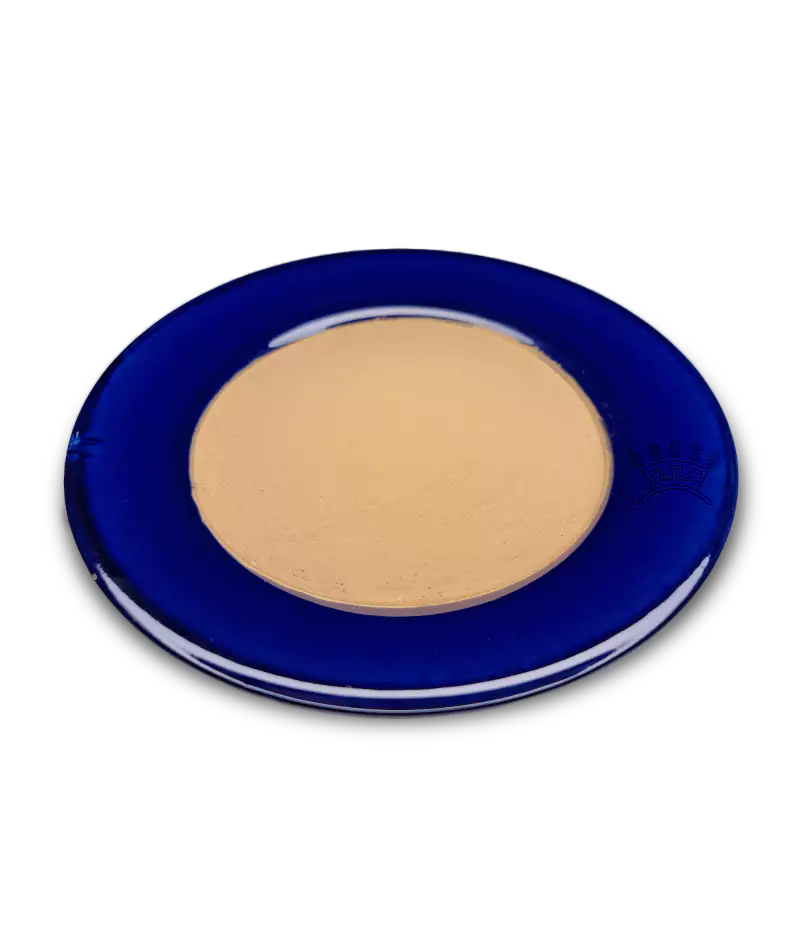
How Does Licorice Affect Our Digestive System?
Licorice contains a compound called glycyrrhizin, which is highly effective in treating stomach pain, indigestion, heartburn, and acid reflux. It is commonly used in various forms to address digestive issues and combat bacterial and viral infections.
Healing Stomach Ulcers
Stomach and intestinal ulcers are often caused by Helicobacter pylori, a type of bacteria that induces inflammation and ulcer formation. Licorice root, particularly its glycyrrhizin content, plays a significant role in:
- Healing ulcers by soothing the stomach lining.
- Controlling Helicobacter pylori, preventing its growth and reducing inflammation.
Licorice’s flavonoids, such as glabrin and glabridin, have anti-inflammatory properties that alleviate stomach pain and heartburn by calming irritated tissues.
Acid Reflux and Heartburn Relief
Licorice helps control acid reflux by forming a protective barrier in the stomach lining, preventing irritation caused by excess acid. It also reduces heartburn by inhibiting inflammation and regulating acid production.
Role of Glycyrrhizin in Inflammation Reduction
Glycyrrhizin in licorice promotes the secretion of serotonin and prostaglandins, compounds that reduce swelling in the stomach. This mechanism not only aids in healing but also prevents further damage to the stomach lining.
Conclusion
Licorice offers natural relief for several digestive issues, including ulcers, acid reflux, and bacterial infections. Its ability to regulate stomach acid, reduce inflammation, and soothe the digestive tract makes it a valuable herbal remedy for maintaining gastrointestinal health.
The Impact of Licorice on Oral Health
For centuries, certain herbs have been used to maintain oral health, and licorice is among the most prominent. Thanks to its antibacterial, antiviral, and anti-inflammatory properties, licorice is highly effective in addressing common oral and dental issues such as canker sores, gingivitis, and tooth decay. By targeting specific bacteria responsible for dental problems, licorice helps prevent cavities and promotes overall oral hygiene.
Licorice and Cancer
Licorice may also play a supportive role in cancer care. Studies suggest that it can slow down the growth of cancer cells and alleviate pain associated with chemotherapy. One of the common side effects of chemotherapy is the development of painful mouth sores. Licorice consumption has been shown to reduce this discomfort, improving the quality of life for patients undergoing cancer treatment.
Licorice’s natural properties make it a valuable tool for promoting both oral health and providing relief in certain cancer-related conditions.
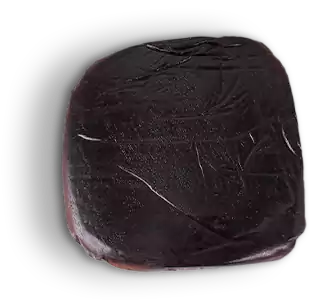
Licorice
Licorice in the Treatment of Hepatitis C
Hepatitis C, when left untreated for an extended period, can lead to chronic liver inflammation and significant liver damage. The compound glycyrrhizin, found in licorice root, has demonstrated potential in combating this disease and supporting liver health. Studies conducted on animal models, such as mice, have shown that licorice extract can prevent oxidative liver damage. Acting as a natural chemoprotective agent, glycyrrhizin helps reduce inflammation and mitigates liver injury, making it a promising complementary therapy for Hepatitis C management.
The Effect of Licorice on Infections
Research has identified that licorice root contains at least two antiviral elements, GL (glycyrrhizin) and GA (glycyrrhetinic acid), which inhibit viral activity by disrupting viral gene expression and replication. These compounds weaken the virus’s ability to spread and multiply. Furthermore, licorice is rich in flavonoids, which have demonstrated efficacy in treating bacterial infections, making it a powerful natural remedy for both viral and bacterial infections.
Licorice’s antiviral and antibacterial properties make it a valuable tool in combating a wide range of infections, highlighting its potential in integrative medical treatments.
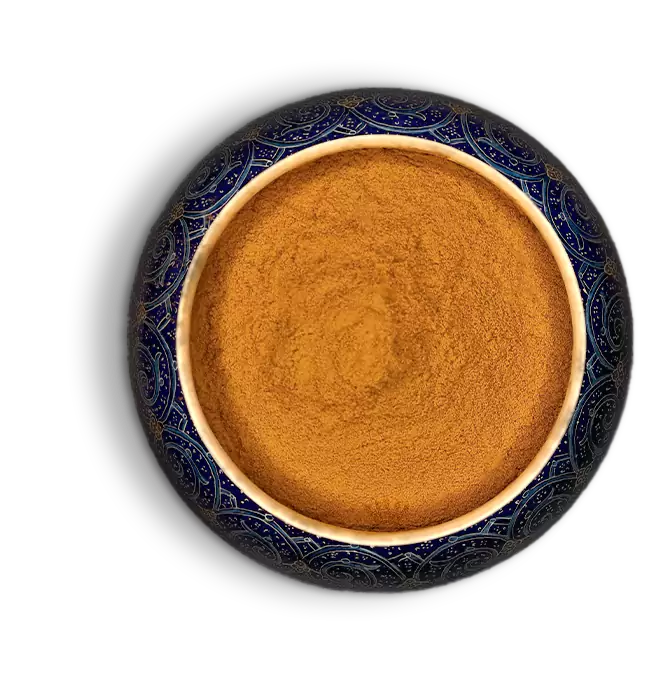
Effects of Licorice on Menopause and Polycystic Ovary Syndrome (PCOS)
One of the most common symptoms of menopause is hot flashes, characterized by sudden warmth in the face, neck, and chest, often accompanied by redness and sweating. These episodes can be uncomfortable and distressing for many women. Studies on menopausal women indicate that licorice root can significantly reduce the frequency and severity of hot flashes.
Research also shows that licorice can lower serum testosterone levels, making it an effective treatment for conditions like hirsutism and polycystic ovary syndrome (PCOS). Its ability to balance hormones highlights its potential in managing these conditions.
Licorice for Sore Throat
Licorice has long been used as a remedy for sore throat and cough. Licorice lozenges are particularly effective in soothing throat pain, while its use as a tea, herbal infusion, or spray is widely recognized for relieving irritation and reducing swelling in the throat and airways.
Benefits of Licorice for the Respiratory System
Several studies have shown that glycyrrhizic acid, asiatic acid, and oleanolic acid found in licorice root can slow the progression of bronchitis. Licorice has been extensively used for years to treat asthma. In animal studies, glycyrrhizin was found to improve chronic histopathological changes in the lungs, supporting its role in respiratory health.
Licorice’s anti-inflammatory compounds help reduce airway inflammation, a common issue in conditions like asthma, making it beneficial for managing respiratory diseases.
Licorice’s versatile properties make it a valuable herbal remedy for managing menopause, PCOS, sore throat, and respiratory issues. Its ability to address both hormonal and inflammatory concerns underscores its importance in traditional and modern medicine.
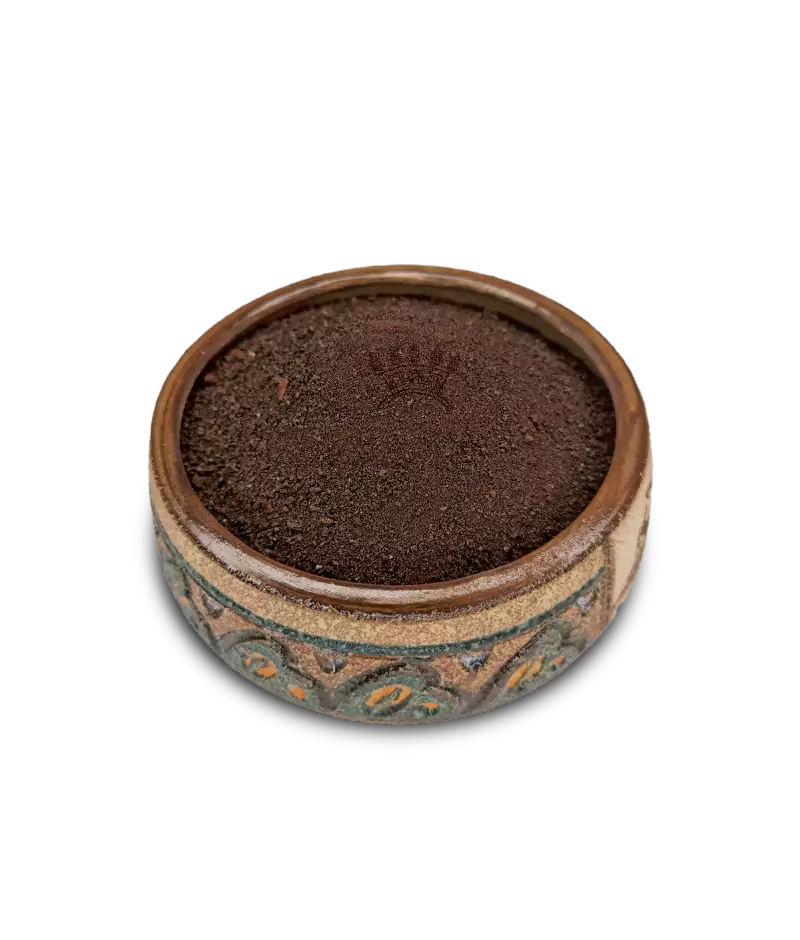
The Impact of Licorice on Weight Loss
Some studies suggest that licorice may play a role in weight loss by reducing body fat mass. Research indicates that licorice can decrease fat accumulation by influencing specific metabolic pathways.
In one study, 15 female participants consumed 3.5 grams of licorice daily for two months. Results showed:
- Body mass index (BMI) remained stable.
- Body fat mass (BFM) decreased.
- Extracellular water (ECW), a measure of total body water, increased.
- Plasma renin activity (PRA) and aldosterone levels were suppressed.
The study concluded that licorice may reduce fat mass by inhibiting 11β-hydroxysteroid dehydrogenase type 1 (11β-HSD1) activity in fat cells, a key enzyme involved in fat metabolism.
These findings suggest that licorice could be a natural aid in managing body fat, though further studies are necessary to confirm its effectiveness and safety in long-term weight management. Always consult a healthcare provider before using licorice for weight loss.
Other Benefits of Licorice
Licorice offers a wide range of health benefits due to its versatile medicinal properties:
- Acts as a Natural Antidepressant: Licorice positively impacts mood and enhances memory functions.
- Regulates Cholesterol Levels: It helps in reducing high cholesterol and triglyceride levels, contributing to better cardiovascular health.
- Diabetes Management: Licorice shows beneficial effects on diabetes symptoms like excessive thirst and frequent urination, though it does not directly lower blood glucose levels.
- Supports Liver and Kidney Health: Due to its anti-inflammatory properties, licorice is commonly used in medications for liver and kidney disorders.
- Boosts Immunity and Reduces Stress: Licorice strengthens the body’s resistance against infections and protects against stress-related damage.
- Alleviates Allergies: It can help in managing allergic reactions by reducing inflammation and boosting immune responses.
- Improves Gum Health: Licorice is effective in treating gum diseases and maintaining overall oral hygiene.
Licorice’s multifaceted properties make it a valuable herbal remedy for improving both physical and mental well-being. However, it should be consumed in moderation to avoid potential side effects.
Use of Licorice in Medications
Licorice is widely used in the formulation of various medications, including tablets, cough syrups, lozenges, sprays, capsules, and more. Examples of licorice-based drugs include:
- Licofar: A tablet used for relieving cough and sore throat.
- Reglycydin: An oral medication for treating stomach inflammation.
- Altadine: A tablet designed to treat mucosal and throat inflammation.
In Iran, numerous pharmaceutical formulations containing licorice are currently produced. For instance:
- D-Reglyc: A medicinal product used to prevent stomach ulcers.
- Mentazine: A tablet that alleviates digestive pain and stomach ulcers, while also acting as a mild laxative.
- Reglyc: A tablet prescribed for treating gastritis and duodenal ulcers.
Licorice’s active compounds, such as glycyrrhizin, make it an essential ingredient in these medications, particularly for their anti-inflammatory, soothing, and healing properties. These qualities make licorice a valuable component in addressing a wide range of digestive and respiratory conditions.
Written by: Sepidan Osareh Jonoob Co.
(Meysam Shokripour, CEO of Sepidan Osareh Jonoob Co.)
References
- Mahmoud Bahmani, A review of the health effects and uses of drugs of plant licorice (Glycyrrhiza glabra L.) in Iran, (2014).
- Armanini and colleagues, Effect of licorice on the reduction of body fat mass in healthy subjects, (2014), Journal of Endocrinological Investigation.
- Hai Zhong Huo, Hepatoprotective and Antioxidant Effects of Licorice Extract against CCl4-Induced Oxidative Damage in Rats, (2011), China.
- Diego Armanini and colleagues, Licorice reduces serum testosterone in healthy women, (2004), Italy.
Note: Unauthorized reproduction or use of this content without proper attribution to the source is prohibited.
Latest Licorice Articles and News
The Effects of Licorice on Corona Disease
The Effects of Licorice on COVID-19 Licorice has shown potential benefits in addressing symptoms and complications associated with COVID-19 due to its natural properties, including: Anti-viral Activities: Licorice contains compounds like glycyrrhizin that may inhibit...
Licorice Tea
Licorice Tea Licorice tea is a well-known herbal drink with numerous health benefits. Derived from licorice root, it is effective in soothing sore throat, acid reflux, indigestion, and stomach disorders. It also helps manage respiratory issues like asthma and...
Licorice in Food and Beverages
Licorice in Food and Beverages Licorice has been used in food and beverages for centuries as a natural sweetener and flavoring agent. With sweetness nearly 50 times that of sugar, it adds a distinctive herbal taste to a wide range of products. Commonly found in...
